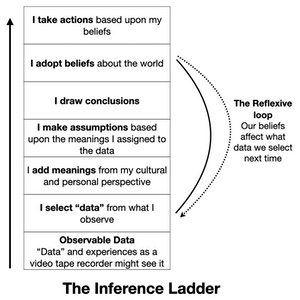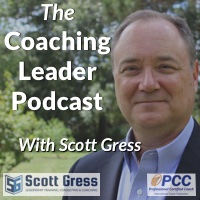

There are a number of themes that fit in with this one. Some of these excuses, also known as lies, might be that nobody wants to …do what? How about: worship, attend Bible class, volunteer, step up, help, etc. Then closely related to this is the thinking that we assume: no one cares. No one cares how much I work, cares about the church, about the unchurched, about the sick, about all the hours I work, or you can fill in the blank. We might even put it the other way, “everyone is: busy…overcommitted…under-committed…too afraid to share their faith…etc.”
The truth is rarely like our perceptions and related assumptions. Consider this true to life story: Imagine you’re on your way to the Christmas party. Your spouse says you are going to meet “John” at the Christmas and he’s a real horse’s (blank). So we meet this nice guy at the punch bowl and share a laugh and we tell our spouse in the corner we met this really nice, funny guy. We didn’t catch their name. (But we point them out discretely). Then she says, “Oh no, that’s the John I was telling you about!” Then we unconsciously recalibrate our first impressions. Yeah, he did seem to make fun of a few people there. He did have an annoying laugh. Really? Yes, we do it all the time. We hear, “you won’t like that movie” or “that restaurant has the worst service.” So we interject some opinions that actually shape how we interpret our experience. Then we draw conclusions in line with those expectations.

It’s called the inference ladder. We select the data that we accept, then we draw conclusions based upon that data, then interpret the data with our assumptions and draw conclusions which shape our perception of data the next time. It happens all the time. Our brains want to work efficiently. We draw inferences about people and what they think, what they will do or not do, how busy we think they are and on and on. Bottom line? It is not accurate and likely not fair.
But it does give us the excuse to keep doing things the same old way because we think we know our reality and what obstacles are getting in our way. Except it’s not true.
The reality is that we have often created those obstacles and barriers. We have allowed those perceptions to exist and grow and inhibit us.
What do I mean? How could this be true? A few examples. If people aren’t attending Bible class, have you ever sat down confidentially and privately with those who will gently tell the truth and asked them? Sure they might float some safe answer, but get curious and gently dig deeper. It might be that they work late on Saturdays. Maybe they don’t like to listen to Brenda talk so much in class. Maybe they don’t want to be embarrassed if called upon. Maybe they don’t think you are very prepared! It’s often not what you think!
What about the lack of volunteers? Same thing, do some reconnaissance. Ask people. Take the time to go in without any preconceived ideas and explore with them non-judgmentally. I bet you’ll here people say things like, “I don’t just want to fold bulletins, I want to make a difference in our community and I don’t see us doing anything like that.” Or, “I was told harshly by (insert name here) that I was doing it wrong when I volunteered before.” “They dumped everything on me.” You get the idea. People have a lot of things on their plates. Their choices need to resonate with what they value. Perhaps you need to connect the dots for them that shows that when they do X then it makes an eternal difference because Y. Or maybe you need to connect the dots for yourself and maybe you need to better align what your congregation does with God’s vision for your ministry. Do you have a vision?
There’s probably something going on that you can address with people personally. But what it comes down to is you, having the courage to invest the time and want to learn by talking to people. Then you will be on the pathway to overcoming this excuse or lie we tell ourselves.
This is leadership and taking responsibility. But taking responsibility takes courage. It may mean learning something about ourselves that may be uncomfortable. It might mean having a difficult conversation, or two or three and then dealing whatever that conversation brings up. Such as that problem person who is a roadblock to ministry. Do you really want to let sleeping dogs lie and leave things as they are? That’s not leadership.
Who needs that heartburn? Well, you do if you want to be a leader. That’s what it requires. You have to get to the truth and deal with the problems.
Nobody wants to? Maybe you don’t want to! Get out of your own way and move forward with the courage that God provides. He will hold you up.
Rev. Scott Gress is believes in Growing People for Ministry by focussing on leadership, discipleship and teamwork. Contact Scott if you are interested in him working with you or your church. A free 30 minutes sample session is available to explore how you might work best together. The Coaching Leader Podcast is also available on iTunes and his YouTube page. You can contact Scott through email scottgress@me.com or his blog page scottgress.com or at 561-542-4472
"Growing People for Ministry" Leadership + Discipleship + Teamwork
Check out the: Coaching Leader Podcast!

